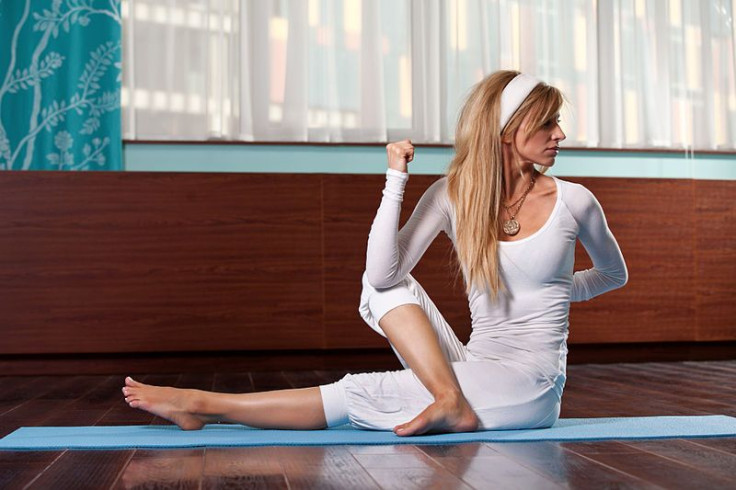Yoga Eases Insomnia During Menopause, But Not Hot Flashes

When a woman hits menopause, she will begin to experience several hormonal changes, such as a drop in estrogen levels that may physically alter her body. In the United States, 51 is the average age that women reach menopause, with 85 percent of American women experiencing various levels of hot flashes, according to the National Institute of Aging. Sudden bursts of heat in the body, known as hot flashes, can happen anytime during the day. And if they occur at night, they’re known as night sweats. Hot flashes or night sweats in bed may be responsible for sleep disturbance and can contribute to insomnia. Yoga, used as a natural remedy to alleviate menopause symptoms, is found to only be an effective treatment for insomnia but not for hot flashes, according to a recent study.
Findings published online in the journal Menopause show that taking a 12-week yoga class and practicing yoga at home were linked to less sleep disturbances and reduced insomnia, but they did not have any effect on hot flashes or night sweats. A total of 249 healthy, previously sedentary women at multiple sites, including Group Health Research Institute, were assigned to do either yoga, a moderate aerobic exercise program, or usual activity. These women were also simultaneously randomized to take an omega-3 fatty acid supplement or a placebo.
The yoga classes that the participants were assigned to consist of 12 weekly 90-minute yoga sessions with daily home practices. The participants were asked to keep a daily dairy, which was assessed by the researchers during week six and week 12 of the study. The researchers found that exercise seemed to slightly improve sleep and relieve insomnia and depression. Yoga was linked to better sleep quality and less depression. The omega-3 supplement was not linked to any improvement in hot flashes, night sweats, sleep, or mood, Group Health reports.
“Many women suffer from insomnia during menopause, and it’s good to know that yoga may help them,” said Katherine Newton, Ph.D., lead author of the study and a senior investigator at Group Health Research Institute.
Researchers have noticed a growing trend among women who are opting for natural remedies, rather than hormone therapy, to alleviate menopause problems such as hot flashes. “That’s why MsFLASH (Menopause Strategies: Finding Lasting Answers for Symptoms and Health) tried to see whether three more “natural” approaches—yoga, exercise, or fish oil—might help ease these menopause symptoms,” said Newton.
The U.S. Food and Drug Administration recently approved BRISDELLE, a new medication that is designed to treat hot flashes in menopausal women. However, menopausal women fear that the drug can pose certain health risks for women since it contains 7.5 milligrams of paroxetine, a medication that is used to treat psychiatric disorders. Paroxetine, though an antidepressant used to decrease hot flashes, is not as effective as hormone therapy in treating severe hot flashes, according to the Mayo Clinic.
To learn ways to naturally treat hot flashes, click here.
Published by Medicaldaily.com



























